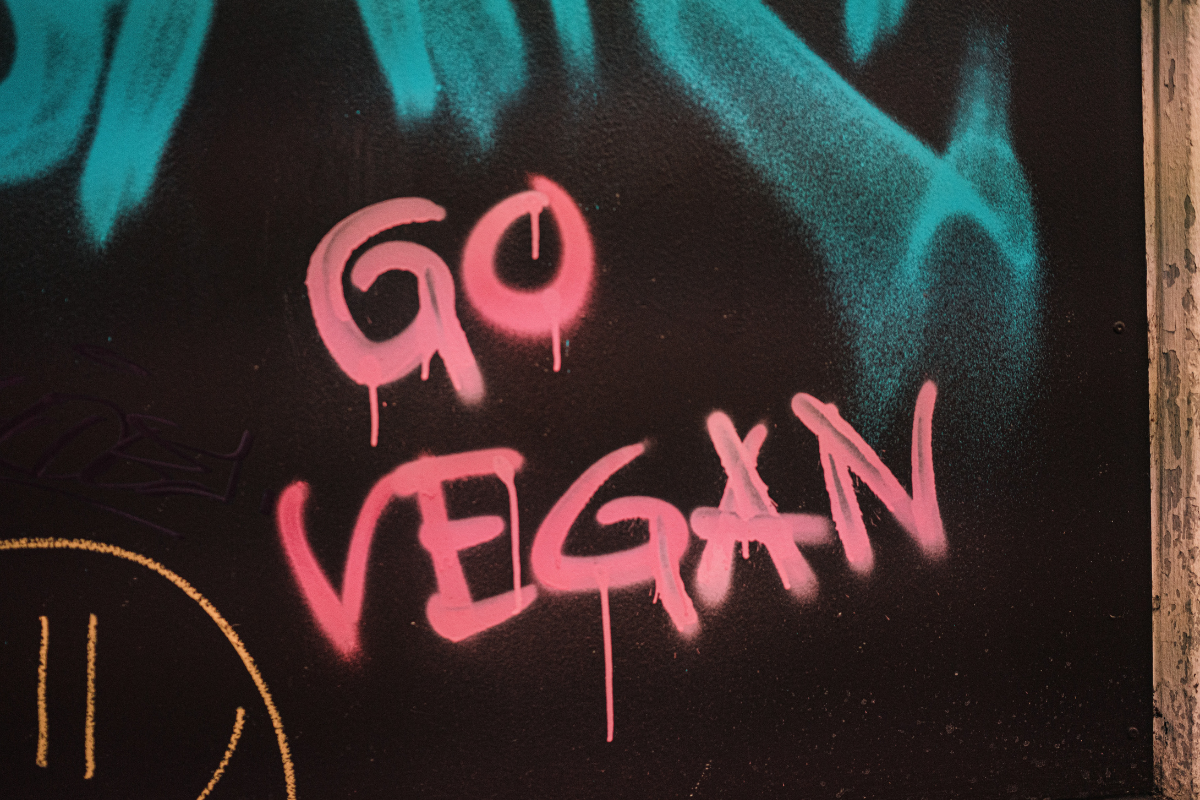by Priscilla Feral, president of FoA
On May 3, I watched on screen and listened as 23 students from Connecticut’s Norwalk Community College presented advertising concepts about how to motivate Generation Z—now in their mid-teens to mid-20s—to become vegan.
The “Principles of Advertising” class is taught by a friend, a retired ad agency executive. He had reached out and asked me to choose a topic I would like the students to focus an advertising campaign on for Friends of Animals.
I said veganism, knowing that this demographic of nearly 68 million in the U.S., born between 1997 and 2012, was concerned about Earth’s future due to extreme weather disasters caused by the climate crisis. Since animal farming drives global warming by releasing greenhouse gasses into the atmosphere, the assignment seemed like a natural fit. If Gen Z stopped eating animal products, it would conserve water and land and cut greenhouse gas emissions, yet noone in the class was vegan much less vegetarian
The teacher gave the students the task of forming arguments about the themes they researched and analyzed. They were told I’d be there at the end of their semester to comment on their social media advertising presentations.
I knew this assignment would be a stretch, likely to shake them up to explore new information beyond the cliché of opposing factory farming and trying to regulate it—as though all animal farming doesn’t send innocent animals to the same abattoir. I hoped they’d understand the complexity of the issue—that you can’t regulate atrocities and that their individual choices and lifestyles could feed or starve an industry.
The day I arrived to provide input on their assignment, the students were divided into four groups of “ad agencies” to make their cases for motivating their peers to go vegan. Their teacher first provided an overview about the health benefits of adopting a vegan diet. Then each group proceeded with their 20-minute presentations.
Group 1 imagined a taste barrier to vegan food since research shows Gen Zers feel they will miss out on “good food” because of the taste of meat alternative products. They presented young celebrity chefs as people who could influence Gen Z to try appetizing vegan dishes including vegan meat analogs. They projected that Vegan Worcestershire, seasonings and other umami flavoring could make food taste more like meat, which (somehow) might make it more appetizing.
Group 2 had the compelling theme of addressing the climate crisis while tying vegan food into reducing greenhouse gasses and global warming. They mentioned saving water when animals and land weren’t used for animal farming. The subject of a scorched Earth resonated with them, and they seemed motivated to influence others with what they learned.
Group 3 focused on how to escape heart disease, diabetes, high cholesterol, Alzheimer’s and other diet- related afflictions. When I asked how many in their group had family members with health issues, five out of six hands were raised, while several looked anguished. One student said her dancer friends were vegan, and she thought that better body weight was associated with vegan food.
Group 4 focused on animal rights and compassion. They showed the intense cruelty of taking calves from mother cows and sending animals to slaughter. They proposed showing videos of a cow watching her calf in a line-up to slaughter and they had visuals of pigs, dead chickens and other animals in distress because people were intent on eating them. Every student in this group appeared changed—moved by the morality of the issue.
I applauded the energy that went into such thoughtful presentations and told them I hoped they’d work for the change they wanted to see in an Earth left in their hands.
One student revealed that after participating in the assignment, she was open to trying a vegan diet. Several agreed that it would feel supportive to go vegan with friends and partners, and all indicated that the assignments had opened their minds. I left the class feeling hopeful.
We’ve asked an ad agency to consider the students’ concepts and develop a pro bono vegan ad campaign for Friends of Animals and Gen Z.
Time to bring Gen Z into the fold for animals.

